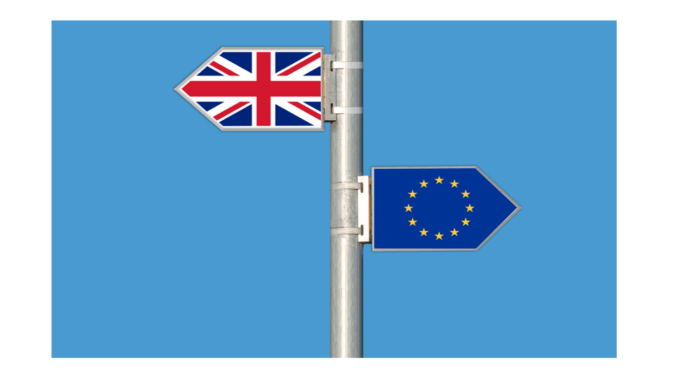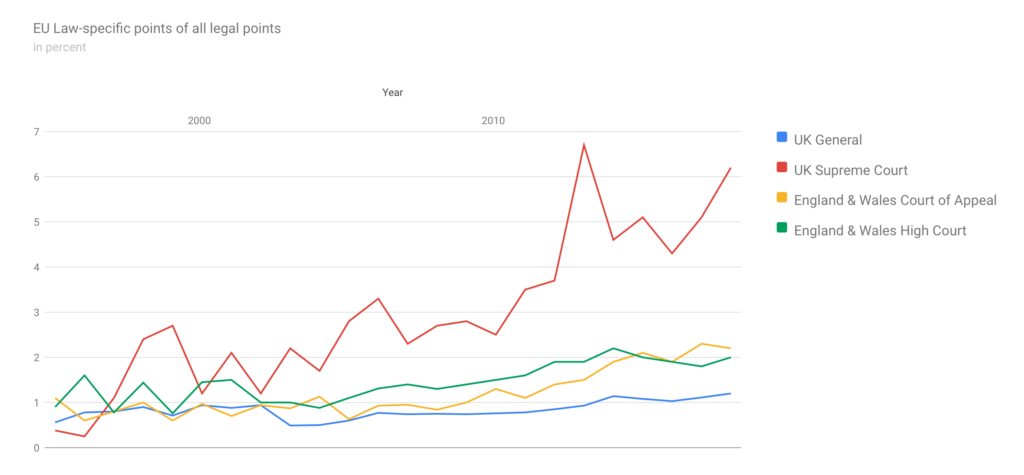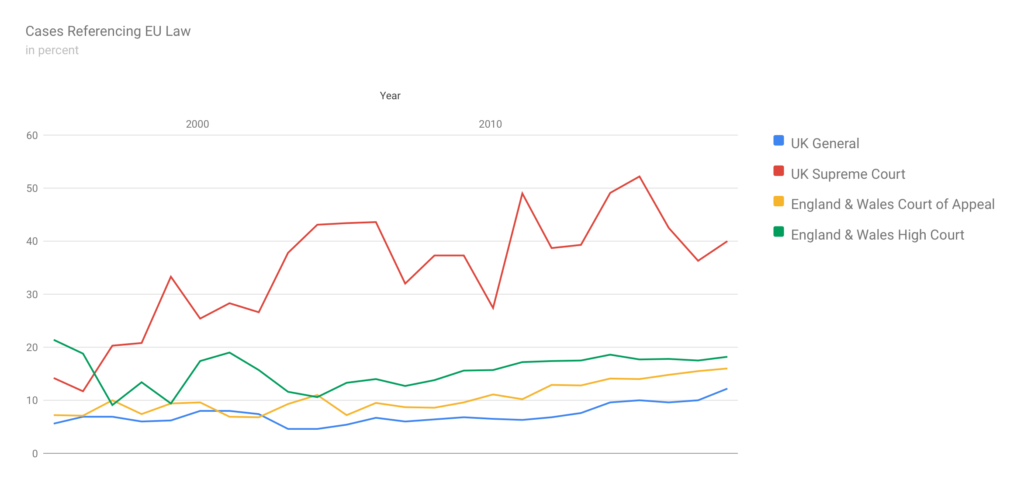
Legal AI company, CourtQuant, has used machine learning techniques to find out what impact a hard Brexit would have on British law – and it is notable.
A key finding is that, on average, 12.2% of UK case law from last year will be at risk following a hard Brexit because of specific EU legal issues that became part of the cases. ‘This gives a good indication of legal uncertainty in this scenario’, said the company.
But when it came to UK Supreme Court judgments the situation was a lot more extreme, with the application and referencing of EU law involved in 40-50% of UK Supreme Court judgments.
And, 6.2% of specific legal points made by the UK Supreme Court were based directly on EU law. ‘There is a systemic risk that this basis could be invalidated with a hard Brexit,’ said the company.
The team, which is headed by Cambridge law graduates including Ludwig Bull, CTO, who readers will remember from previous legal AI company startups, says that this means: ‘In case of a ‘No Deal’ Brexit and the falling away of EU law, a large body of case law which British courts have referred to in the past will no longer be valid. This leaves a regulatory ‘gap’ that poses uncertainty and risk to litigants in areas where EU law previously provided guidance.’
To do this work they analysed 300,000 cases across different levels of the British court system and found the average percentage of cases referencing EU law every year.
Bull concludes: ‘While strong measurements exist in the form of financial markets and economic data, measuring the quantitative impact on the law is neglected. Too often the only type of analysis is qualitative – it’s interesting, but you need the numbers to get a real overview. Litigation data analysis, as provided by CourtQuant offers a better way to describe, change and improve the law.’


